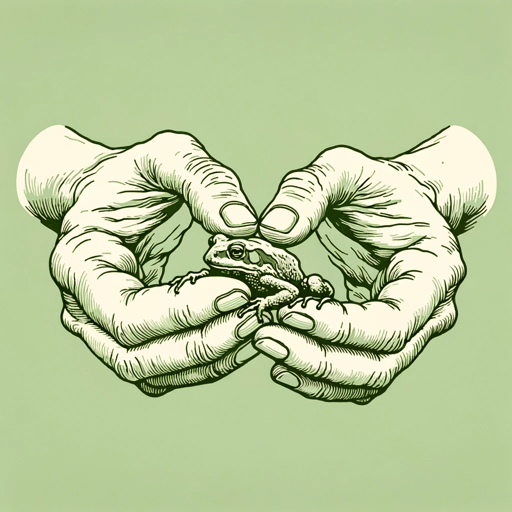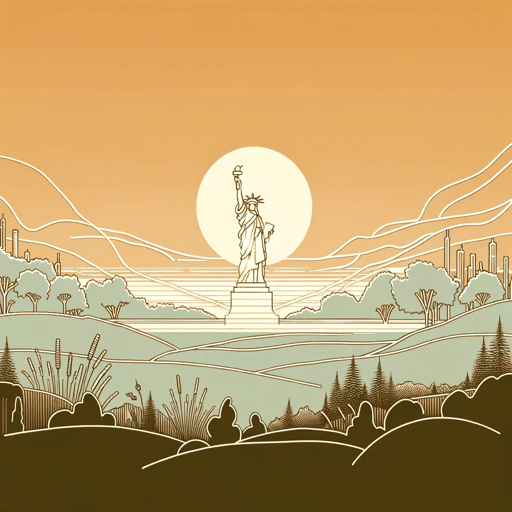17 pages • 34 minutes read
Joseph BruchacBirdfoot’s Grampa
Fiction | Poem | Adult | Published in 1975A modern alternative to SparkNotes and CliffsNotes, SuperSummary offers high-quality Study Guides with detailed chapter summaries and analysis of major themes, characters, and more.
Summary and Study Guide
Overview
“Birdfoot’s Grampa” is a poem by Joseph Bruchac, a Nulhegan Abenaki storyteller, author, poet, and musician. Originally published in 1975 as postcard #28 in a collection of poetry postcards, the poem is Bruchac’s most widely anthologized piece. It appears in one of Bruchac’s early chapbooks titled Entering Onondaga (1978) and in Unsettling America: An Anthology of Contemporary Multicultural Poetry (1994), an anthology of poems aimed at giving voice to the everyday experience of diverse peoples in America. The notes to Bruchac’s 1980 essay, Translator’s Son indicate that “Birdfoot’s Grampa” presents a snapshot of a moment between a young person and an elder that teaches lessons critical to Native traditions.
Joseph Bruchac is a prolific author, and his published works span a number of genres that include poetry, nonfiction, adult fiction, and children’s books. Bruchac first published a book of poetry in 1971, “Birdfoot’s Grampa” is part of his earlier work. It is representative of Bruchac’s ability to deliver solemn, important messages in a playful style. When asked about the poem’s meaning in a 1996 interview, Bruchac explained that the poem was inspired by a drive he took with Swift Eagle, an elderly Pueblo Apache storyteller. The pair were driving to a speaking engagement, and they were running late, but Swift Eagle and Bruchac stopped repeatedly to move toads off the road, much to Bruchac’s frustration. Swift Eagle said the last lines of the poem to Bruchac, providing him with the inspiration to write “Birdfoot’s Grampa.” Of the poem, Bruchac himself says it is “about being stupid and having your eyes opened by an elder.”
“Birdfoot’s Grampa” was written and published at the dawn of what is referred to as The Self-Determination Era for Indigenous peoples in the United States. The period, beginning in 1968 and running through to the present, saw an increase in Indigenous voices demanding that the United States reckon with the historical mistreatment of Native Americans. This increased activism inspired a blossoming of interest in Native American history and culture, including literature and poetry. Bruchac’s work is supported and promoted by several organizations representing Northeastern tribes, and he is actively engaged in a variety of education programs, both within and outside of the Native communities in the U.S. and Canada.
Poet Biography
Joseph Bruchac was born in Saratoga Springs, New York on October 16, 1942, and he has Abenaki, Slovak, and English heritage. As a young boy, he went to live with his maternal grandparents in Greenfield Center, a town nestled at the foot of the Adirondack mountains. Since there was still strong prejudice against Native peoples at that time, Bruchac was not fully aware of his Native heritage until he was a young adult, though his grandfather raised him with Native sensibilities. His grandmother held a law degree but never practiced law; his grandfather was only minimally literate but skilled with his hands and drawn to nature. Bruchac’s love of literature was inspired by his grandmother, who kept their home well-stocked with books. His grandfather nurtured Bruchac’s love and connection to nature, and he taught Bruchac how to fish and to walk quietly through the woods to hear and learn from the plants and animals who lived there.
Bruchac originally intended to become a naturalist or a park ranger, but while studying at Cornell University, he quickly fell in love with writing. He eventually completed his master’s degree in creative writing at Syracuse University. An anti-war protestor during the Vietnam War, Bruchac and his wife, Carol, decided to expatriate and become teachers of English in Ghana, where they stayed for three years. His experiences there opened his eyes further to the depth and importance of storytelling as a means of cultural expression, education, and connection. Once back in the States, Bruchac went on to gain a Ph.D. in Comparative Literature from the Union Institute of Ohio.
Bruchac’s experiences with storytelling and its ability to connect people within their communities was a powerful inspiration to Bruchac; they led him to his work as a teacher and director of a Skidmore College program based inside a maximum security facility within the New York prison system. There he developed and honed his storytelling techniques and taught them to prisoners to help them connect with their own stories and communities. He also worked closely with clan leaders at the Iroquois Onandaga Reservation, who gave him the Iroquois name of Gah Neh Goh He Yoh, which means “the Good Mind,” an honorific indicating that he is of the good spirits and speaks truthfully.
As Bruchac’s interest in his Native heritage deepened, he and his wife moved back in with his grandfather, turning an upstairs room above the family store into a home office and library and founding the Greenfield Review Literary Center.
Though Bruchac is a prolific writer of fiction, nonfiction, poetry, and children’s literature, he is also known as a champion of Native voices. Through his writings and interviews, he attempts to right the stereotypes of Native Americans presented in classic writings like The Little House on the Prairie series. He has also published numerous interviews with Indigenous people from all over the United States and Canada as a way to share the knowledge he has learned in his travels in the process of exploring of his own heritage.
He is the recipient of numerous awards, including an American Book Award, an American Folklore Society Aesop Accolade, a Scientific American Young Readers Book Award, a National Endowment for the Arts Writing Fellowship for Poetry, and the 1998 Writer of the Year and Storyteller of the Year awards from The Wordcraft Circle of Native Writers and Storytellers, just to name a few. He is a respected elder among his Bear Clan Abenaki tribe, and he is also a skilled musician, playing Native flutes and drums with his sister and two adult sons as the contemporary Abenaki band the Dawnland Singers.
Poem Text
Bruchac, Joseph. “Birdfoot’s Grampa.” Unsettling America: An Anthology of Contemporary Multicultural Poetry. 1994. Penguin Books.
Summary
On a rainy summer night, an old man is driving with a young person. The pair is presumably the eponymous Birdfoot and his grandfather, though the speaker of the poem does not explicitly name them as such. Grampa stops the car several times to get out and scoop up “small toads blinded / by our lights” ((Lines 5-6). who appear in the roadway. The toads are blinded by the headlights of the car, but they continue to leap in the road, and the narrator likens them to “live drops of rain” (Line 7).
As the rain continues to fall, the old man is out in the mist as the speaker of the poem tells him the effort he is putting into saving all of the frogs is futile. The speaker insists that the old man get back in the car and continue on their journey because “we’ve got places to go” (Lines 13).
In the last stanza, the speaker focuses on Grampa’s hands, which are old and tough and “full / of wet brown life” (Lines 14-15). The old man stands in the tall grass next to the road with the toads in his hands, and he tells the speaker that the toads “have places to go to / too” (Lines 19-20).
Related Titles
By Joseph Bruchac







